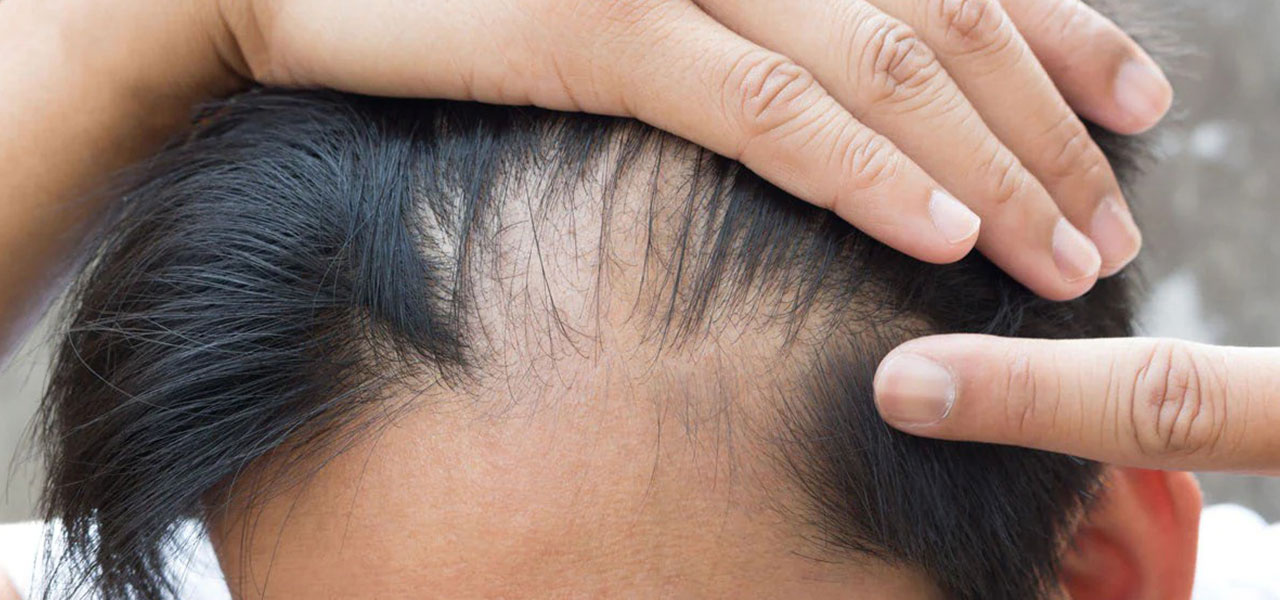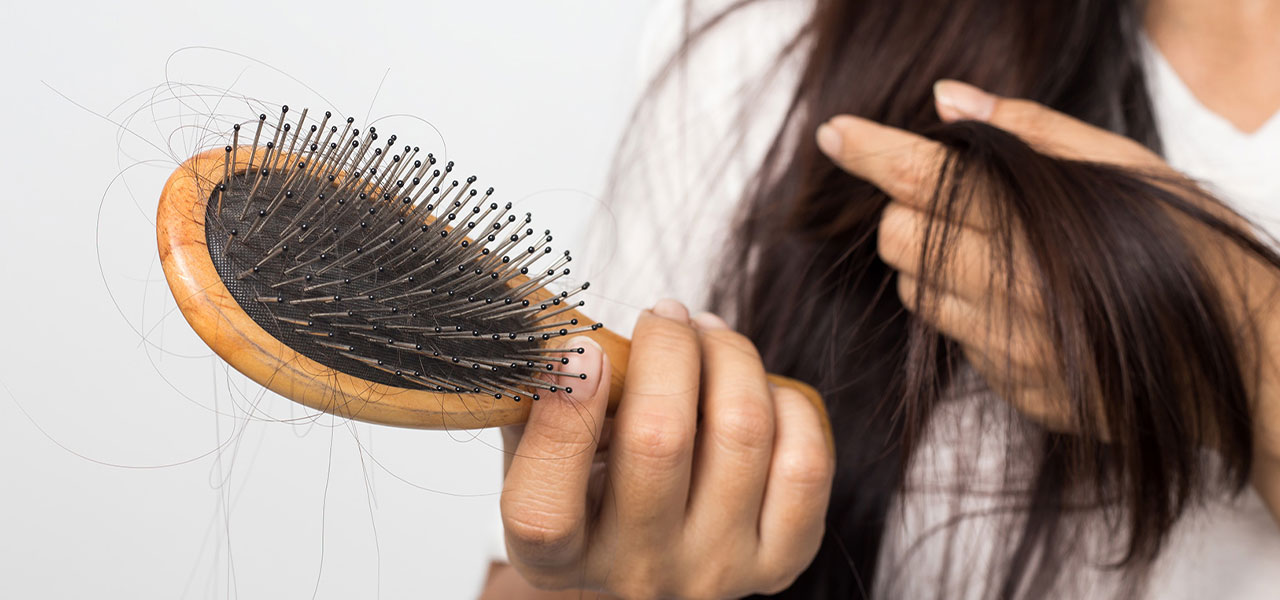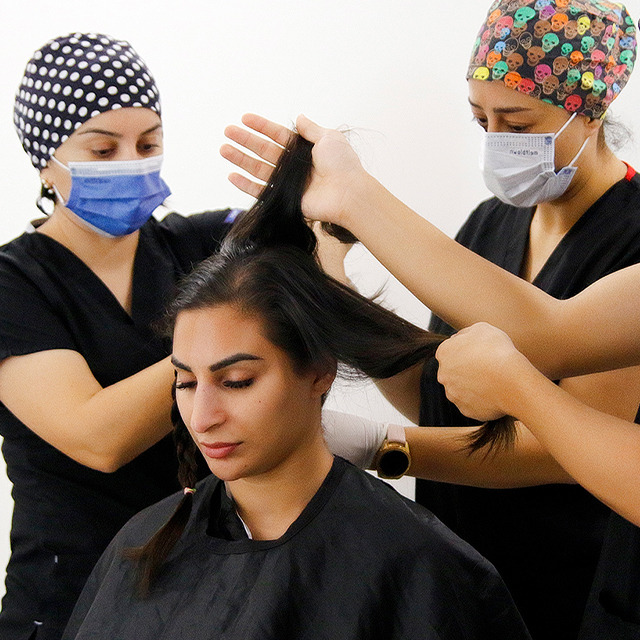What is Hair Loss Treatment?
Hair Loss Therapy involves medication or surgical procedures to stop or reverse Hair Loss. Medication, topical treatments, Hair Transplant surgery, and other procedures may encourage Hair Growth and enhance its look. Hair Loss Therapy aims to increase hair quality and thickness and treat any underlying issues.

What are the advantages of Hair Loss Treatment in Turkey?
Turkey is renowned for both its skilled Hair Transplant doctors and its top-notch medical treatment. The following are some benefits of receiving a Hair Loss Treatment in Turkey:
- Price: Compared to other nations, Hair Loss Treatments in Turkey are often less expensive.
- Expertise: Turkey is home to a sizable number of Hair Transplant specialists with advanced training and expertise.
- Modern facilities: Modern facilities and equipment are available for Hair Transplants at several clinics in Turkey, which may improve outcomes.
- Good success rate: Hair Transplants and other Hair Loss Treatments are quite successful in Turkey.
- Travel location: Turkey is a popular tourist destination where many people go for both holiday and Hair Loss Treatment.
- Accessibility: Turkey is a great travel location for those looking for Hair Loss Treatment, since it is readily accessible by flight from the majority of nations.

What are the Hair Loss Treatment options in Turkey?
Medical tourism, especially for Hair Loss Treatments, is growing in Turkey. Hair Loss Treatment options in Turkey include:
Hair Transplantation
Healthy hair follicles are extracted from the donor region of the scalp (typically the back or sides) and transplanted to the balding portions of the scalp. FUE and DHI (Direct Hair Implantation) are popular Hair Transplant methods in Turkey.
Mesotherapy
Injecting vitamins, minerals, and other nutrients into the scalp is a non-surgical Hair Loss Treatment called Mesotherapy. This increases blood flow, hair development, and hair follicle strength.
Plasmolifting Therapy
(trombosit-Rich Plasma) treatment includes extracting the patient’s blood and isolating the platelets. To boost hair quality and growth, Plasmo Lifting is injected into the scalp.
Laser Therapy
Low-level lasers boost Hair Growth by boosting blood supply to the follicles.
What causes Hair Loss?
Hair Loss may result from hereditary and environmental reasons. Hair Loss may result from:
- Genetics: Androgenetic Alopecia, often known as male or female pattern baldness, affects both men and women. Hereditary genetics induce this Hair Loss.
Hair Loss may be caused by hormonal changes. Menopause and pregnancy may cause Hair Loss in women. - Medical conditions: Thyroid, autoimmune, and scalp infections may cause Hair Loss.
- Blood thinners and chemotherapy medicines may cause Hair Loss.
- Vitamin and mineral shortages, such as iron, zinc, and biotin, may also cause Hair Loss.
- Practices: Overusing heat styling equipment, chemical treatments like perming and dyeing, and tight hairstyles like braids and weaves may damage hair and contribute to Hair Loss.
- Stress: Stress may induce Hair Loss, however the mechanism is unknown.

Who is a good candidate for Hair Loss Treatment?
A suitable candidate for Hair Loss Treatment is someone who:
- Has Hair Loss that is brought on by a condition that can be treated, such a disease or a side effect of medicine.
- Understands that Hair Growth may not become apparent for many months and has reasonable expectations for the treatment’s results.
- Does not have any conditions that would make the chosen treatment inappropriate, such as a bleeding disorder for FUE Hair Transplant; has a healthy scalp with enough hair in the donor region; and does not have any conditions that would make the chosen therapy inappropriate.
- Has examined any underlying medical issues that could be contributing to the Hair Loss and excluded them.
- Is prepared to adhere to post-treatment guidelines and follow-up consultations.
What should be done before Hair Loss Treatment?
To maximise outcomes and minimise risks, some precautions should be performed before Hair Loss Therapy. Before Hair Loss Therapy, do these:
- Contact an expert: A Hair Loss Specialist can identify the reason for your Hair Loss and recommend the best therapy for you.
- Discuss medical history: Tell your Hair Loss Expert about all your medical problems, drugs, and procedures.
- Smoking slows recovery and increases concerns. Stop smoking two weeks before Hair Loss Therapy.
- Avoid blood thinners and anti-inflammatory medicines before Hair Loss Therapy since they increase bleeding risk. Discuss drugs with your Hair Loss Expert before treatment.
- Avoid certain meals and activities: Your Hair Loss Expert may provide you pre-treatment recommendations. Follow these directions carefully for optimal results.
- Prepare psychologically and emotionally: Hair Loss is a sensitive topic, and treatment may be emotionally difficult. Before therapy, prepare psychologically and emotionally and set reasonable expectations.
How long does Hair Loss Treatment take in Turkey?
The kind of therapy and the patient’s demands determine the length of Hair Loss Treatment in Turkey. Following are some basic timetables for typical Hair Loss Treatments:
- Hair Transplantation: The size of the balding region and the quantity of grafts implanted determine the length of Hair Transplant operation. It takes 4–8 hours to finish. Depending on Hair Loss, many treatments may be needed.
- Mesotherapy: Over many months, Mesotherapy comprises 30–60 minute injections.
- Plasmolifting Therapy: Over many months, Plasmolifting treatment requires 30–60-minute sessions.
- Laser Therapy: Laser Treatment comprises repeated 20–30-minute sessions over many months.
Hair Loss Treatment length depends on the individual’s recovery period and reaction to therapy. Based on your requirements and therapy, your Hair Loss Expert may give you a more exact date.

How long does Hair Loss Treatment last?
It’s not possible to generalise about how long a certain therapy for Hair Loss will keep its effects on a given patient. These are some rough estimates regarding the duration of therapy for various types of Hair Loss:
- Hair transplant surgery is a permanent cure to Hair Loss, since the transplanted hair follicles do not normally become bald. The original hair around the transplanted region may continue to decrease over time, though, and may need further treatment.
- Mesotherapy: Results may be transient, and maintenance treatments every few months may be necessary to keep them that way.
- Plasmolifting Therapy: Plasmolifting treatment might produce transient effects, but maintaining those results may need maintenance sessions every several months.
- Results from Laser Treatment may not be permanent, and upkeep sessions may be necessary every few months.
Note that a person’s genetics, lifestyle, and underlying medical issues may all affect how long the effects of Hair Loss Therapy last.
What should be done after Hair Loss Treatment?
Following Hair Loss Therapy, specific procedures must be taken to guarantee good healing and the greatest outcomes. After Hair Loss Therapy, these should be done:
- Follow post-treatment instructions: Your Hair Loss Expert will advise you on post-treatment activities, medicines, and follow-up consultations. To heal properly and get the greatest results, follow these recommendations.
- Take care of the treated area: Depending on the Hair Loss Therapy, you may need to take extra precautions to avoid infection and encourage recovery. Management may include keeping the area clean and dry, avoiding direct sunlight and heavy perspiration, and not scratching or rubbing the treated area.
- Be patient: Hair Loss Therapy results may take time to show. It’s also crucial to have reasonable expectations regarding the outcomes and recognise that certain treatments may take numerous sessions to obtain the desired effect.
- Keep a healthy lifestyle: Eating a balanced diet and exercising regularly may help promote healthy hair development and sustain Hair Loss Treatment benefits.
- Follow up with your Hair Loss Expert: It’s crucial to plan follow-up sessions with your Hair Loss Specialist to assess treatment progress and resolve any issues.
After Hair Loss Treatment, take these measures to guarantee healthy healing and the greatest outcomes.
- Vitamin and mineral shortages, such as iron, zinc, and biotin, may also cause Hair Loss.
- Practices: Overusing heat styling equipment, chemical treatments like perming and dyeing, and tight hairstyles like braids and weaves may damage hair and contribute to Hair Loss.
- Stress: Stress may induce Hair Loss, however the mechanism is unknown.

Alternative treatments for Hair Loss
Alternative Hair Loss Treatments may complement established ones. These Hair Loss remedies are alternatives:
Lavender, peppermint, and rosemary essential oils have been proved to boost hair development and prevent Hair Loss.
- Scalp massage: It boosts circulation and hair development.
- Aloe Vera: Aloe vera gel helps soothe and hydrate the scalp, promoting hair development and reducing Hair Loss.
- Saw Palmetto: This plant is historically used to cure Hair Loss. It blocks the hormone that promotes Hair Loss.
- Acupuncture: To cure and balance the body, tiny needles are inserted into particular spots. Acupuncture may promote hair development and minimise Hair Loss.
These alternative remedies may be beneficial, but they are not a replacement for established Hair Loss Treatments. A Hair Loss Expert can help you choose the best therapy.
